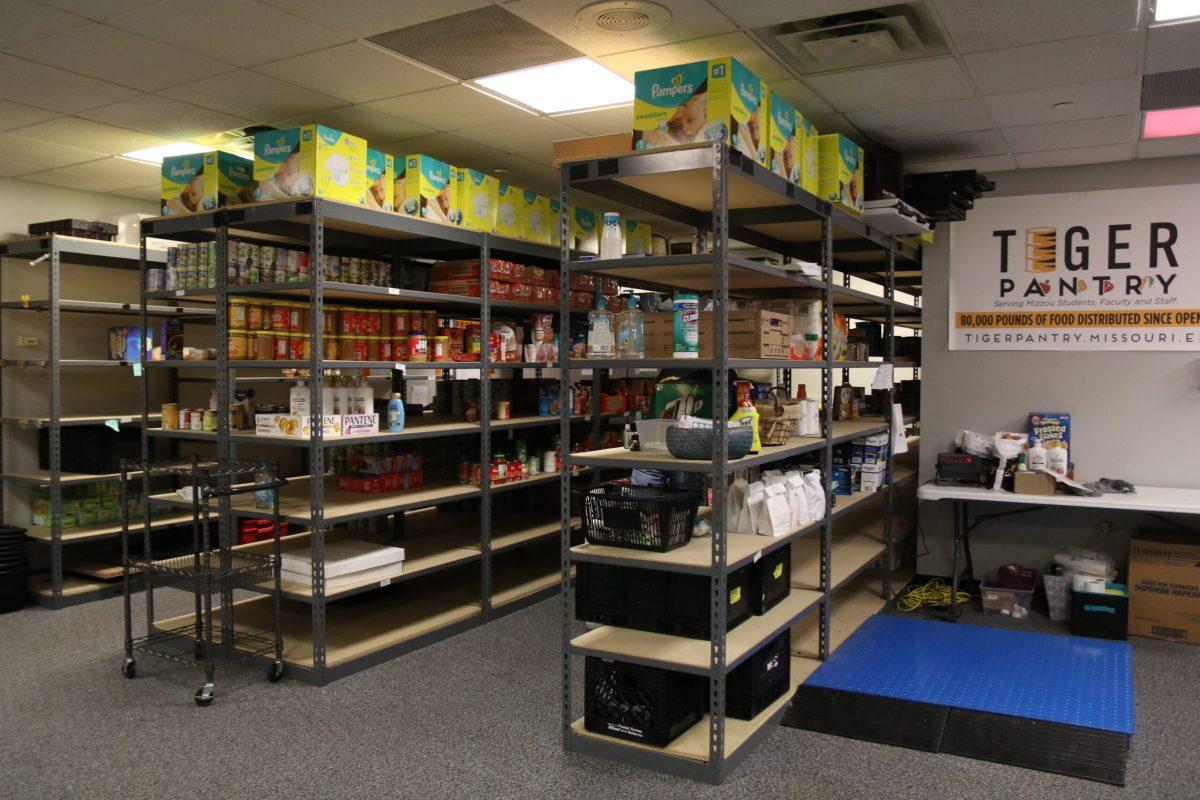
Tiger Pantry has been advocating and educating the public on something the organization’s direction said is not often publicly associated with college students: food insecurity.
Director Abby Mauer said the organization started “Downtown Madness,” which gets downtown apartment complexes involved in donating food every March. Last year, four apartment complexes participated and Mauer said it was a successful initiative.
Due to a lack of participation, the event will not be held this March, Mauer said. Last year Todd, U Centre, District Flats and Rise on 9th participated.
“Sadly, in the past two weeks we’ve had trouble maintaining contact with the apartments that initially replied, so it looks like the drive isn’t going to work out this year,” Mauer said.
When contacted for comment, officials at both Rise on 9th and UCentre said they were unaware of the event. Todd declined to comment. District Flats could not be reached for comment.
Mauer, who has been involved with Tiger Pantry for three years, wants to increase awareness about food insecurity on campus because she thinks some don’t see it as a problem.
“The ‘broke college student’ is a stereotype,” Mauer said. “They assume since we’re paying $10,000 a year to be here we’re OK financially but that’s not true for a lot of students. It’s estimated that up to 50 percent of college students are food insecure at some point in their college career whether it’s for a month or for all four years.”
The percentage of college students that experience food insecurity ranges from 9 to 50 percent, according to a December 2018 report done by the U.S. Government Accountability Office.
As of June 2018, there are 641 campus programs nationwide that provide services relating to food insecurity, according to the College and University Food Bank Alliance.
Tiger Pantry started at MU six years ago with the mission of providing food assistance for those in need within the university. The program gives food out weekly and hygiene products monthly.
Mauer said other local businesses and farmers also contribute to the pantry by providing food and gift cards.
“We do our weekly produce shopping at Gerbes,” Mauer said. “After we had been doing that for a while, Gerbes gave us $2,000 in gift cards as a donation. We’ve been using that, so that’s been helpful,” said Mauer.
Mauer said she has advocated for more funding from the university, as the pantry often runs out of items like eggs and bread by the end of the week.
The program also presents at faculty meetings about payroll deduction being a way to donate, which has become their preferred method of donation and has doubled their donor pool, Mauer said.
Mauer hopes that getting more people involved will create more awareness about food insecurity on college campuses.
_Edited by Ethan Brown | [email protected]_